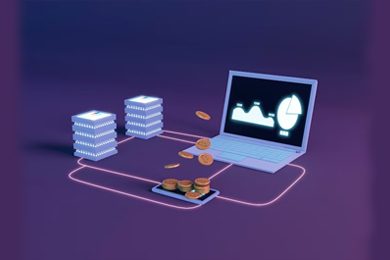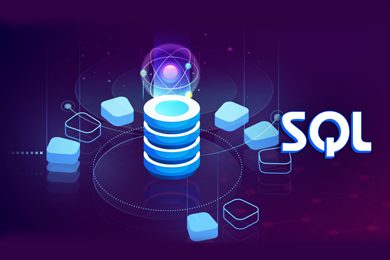This plan includes
- Limited free courses access
- Play & Pause Course Videos
- Video Recorded Lectures
- Learn on Mobile/PC/Tablet
- Quizzes and Real Projects
- Lifetime Course Certificate
- Email & Chat Support
What you'll learn?
- Build an intuition from RDBMS system through NoSQL to the Big Data on the Cloud and Hadoop platform
- Understand various distributed database classifications
- Understand when and how to use Redis or Key-Value Stores
- Understand when and how to use MongoDB or Document-oriented databases
- Understand and use HBase as a Wide-Columnar Store
- Understand and use Time series database (InfluxDB)
- Understand and use Elasticsearch as a search engine
- Understand and use Neo4J as a Graph Database Management System
- Understand large scale distributed data storage and processing in Hadoop
- Understand when and how to use and build Streaming architecture with Apache Kafka
- Use Apache Hive and Understand where to use it in respect to big data platforms
- Understand a number of SQL-on-Hadoop Engines and how they work
- Understand how to use data engineering capabilities to enable a data-driven organization
Course Overview
A comprehensive look at the wide landscape of database systems and how to make a good choice in your next project
The first time we ask or answer any question regarding databases is when building an application. The next is either when our choice of database becomes a bottleneck or when we need to do large-scale data analytics.
This course covers almost all classes of databases or data storage platform there are and when to consider using them. It is a great journey through databases that will be great for software developers, big data engineers, data analysts as well as decision makers. It is not an in-depth look into each of the databases but promises to get you up and running with your first project for each class.
In this course, we are going to cover
-
Relational Database Systems, their features, use cases and limitations
-
Why NoSQL?
-
CAP Theorem
-
Key-Value store and their use cases
-
Document-oriented databases and their use cases
-
Wide-columnar store and their use cases
-
Time-series databases and their use cases
-
Search Engines and their use cases
-
Graph databases and their use cases
-
Distributed Logs and real time streaming systems
-
Hadoop and its use cases
-
SQL-on-Hadoop tools and their use cases
-
How to make informed decisions in building a good data storage platform
What is the target audience?
-
Chief data officers
-
Application developer
-
Data analyst
-
Data architects
-
Data engineers
-
Students
-
Anyone who wants to understand Hadoop from a database perspective.
What this course does not cover?
This course does not access any of the databases from the administrative perspective. So we don't cover administrative tasks like security, backup, recovery, migration and the likes.
Very in-depth features in the specific databases in discussion. An example is that we will not go into the different database engines for MySQL or how to write a stored procedures.
What are the requirements?
The lab for this course can be carried out in any machine (Microsoft Windows, Linux, Mac OX).
However, the training on HBase or Hadoop will require you to have a hadoop environment. The suggestion for this will be to to use a pre-installed sandbox, a cloud offering or install your own custom sandbox.
What do I need to know to get the best out of this course?
This course does not assume any knowledge of NoSQL or data engineering.
However a little knowledge of RDBMS (even Microsoft Access) is enough to get you into the best position for this course.
Pre-requisites
- No strict requirement but knowledge of relational database will be helpful.
- A Windows, Linux or Mac Machine to set up a lab
- Any Hadoop Vendor Sandbox like Cloudera Quickstart or HDP VM (Hadoop)
Target Audience
- Chief Data Officers
- IT Decision Makers
- Database Architects
- Software Developers
- Big data Engineers
- Anyone who wants to understand the where each NoSQL class of database best fits.
- Anyone who is curious about NoSQL or Big Data Systems
Curriculum 129 Lectures 19:51:53
Section 1 : Introduction
- Lecture 2 :
- Data Engineering
- Lecture 3 :
- Learning Environment & Course Material
- Lecture 4 :
- Movielens Dataset
- Lecture 5 :
- Introduction
Section 2 : Relational Database Systems
- Lecture 1 :
- Introduction to Relational Databases
- Lecture 2 :
- SQL
- Lecture 3 :
- Movielens Relational Model
- Lecture 4 :
- Movielens Relational Model: Normalization vs Denormalization
- Lecture 5 :
- MySQL
- Lecture 6 :
- Movielens in MySQL: Database import
- Lecture 7 :
- OLTP in RDBMS: CRUD Applications
- Lecture 8 :
- Indexes
- Lecture 9 :
- Data Warehousing
- Lecture 10 :
- Analytical Processing
- Lecture 11 :
- Transaction Logs
- Lecture 12 :
- Relational Databases - Wrap Up
Section 3 : Database Classification
- Lecture 1 :
- Distributed Databases
- Lecture 2 :
- CAP Theorem
- Lecture 3 :
- BASE
- Lecture 4 :
- Other Classification
Section 4 : Key-Value Store
- Lecture 1 :
- Introduction to KV Stores
- Lecture 2 :
- Redis
- Lecture 3 :
- Install Redis
- Lecture 4 :
- Time Complexity of Algorithm
- Lecture 5 :
- Data Structures in Redis : Key & String
- Lecture 6 :
- Data Structures in Redis II : Hash & List
- Lecture 7 :
- Data structures in Redis III : Set & Sorted Set
- Lecture 8 :
- Data structures in Redis IV : Geo & HyperLogLog
- Lecture 9 :
- Data structures in Redis V : Pubsub & Transaction
- Lecture 10 :
- Modelling Movielens in Redis
- Lecture 11 :
- Redis Example in Application
- Lecture 12 :
- KV Stores: Wrap Up
Section 5 : Document-Oriented Databases
- Lecture 1 :
- Introduction to Document-Oriented Databases
- Lecture 2 :
- MongoDB
- Lecture 3 :
- MongoDB installation
- Lecture 4 :
- Movielens in MongoDB
- Lecture 5 :
- Movielens in MongoDB: Normalization vs Denormalization
- Lecture 6 :
- Movielens in MongoDB: Implementation
- Lecture 7 :
- CRUD Operations in MongoDB
- Lecture 8 :
- Indexes
- Lecture 9 :
- MongoDB Aggregation Query - MapReduce function
- Lecture 10 :
- MongoDB Aggregation Query - Aggregation Framework
- Lecture 11 :
- Demo: MySQL vs MongoDB. Modeling with Spark
- Lecture 12 :
- Document Stores: Wrap Up
Section 6 : Search Engine
- Lecture 1 :
- Introduction to Search Engine Stores
- Lecture 2 :
- Elasticsearch
- Lecture 3 :
- Basic Terms Concepts and Description
- Lecture 4 :
- Movielens in Elastisearch
- Lecture 5 :
- CRUD in Elasticsearch
- Lecture 6 :
- Search Queries in Elasticsearch
- Lecture 7 :
- Aggregation Queries in Elasticsearch
- Lecture 8 :
- The Elastic Stack (ELK)
- Lecture 9 :
- Use case: UFO Sighting in ElasticSearch
- Lecture 10 :
- Search Engines: Wrap Up
Section 7 : Wide Column Store
- Lecture 1 :
- Introduction to Columnar databases
- Lecture 2 :
- HBase
- Lecture 3 :
- HBase Architecture
- Lecture 4 :
- HBase Installation
- Lecture 5 :
- Apache Zookeeper
- Lecture 6 :
- Movielens Data in HBase
- Lecture 7 :
- Performing CRUD in HBase
- Lecture 8 :
- SQL on HBase - Apache Phoenix
- Lecture 9 :
- SQL on HBase - Apache Phoenix - Movielens
- Lecture 10 :
- Demo : GeoLife GPS Trajectories
- Lecture 11 :
- Wide Column Store: Wrap Up
Section 8 : Time Series Databases
- Lecture 1 :
- Introduction to Time Series
- Lecture 2 :
- InfluxDB
- Lecture 3 :
- InfluxDB Installation
- Lecture 4 :
- InfluxDB Data Model
- Lecture 5 :
- Data manipulation in InfluxDB
- Lecture 6 :
- TICK Stack I
- Lecture 7 :
- TICK Stack II
- Lecture 8 :
- Time Series Databases: Wrap Up
Section 9 : Graph Databases
- Lecture 1 :
- Introduction to Graph Databases.
- Lecture 2 :
- Modelling in Graph
- Lecture 3 :
- Modelling Movielens as a Graph
- Lecture 4 :
- Neo4J
- Lecture 5 :
- Neo4J installation
- Lecture 6 :
- Cypher
- Lecture 7 :
- Cypher II
- Lecture 8 :
- Movielens in Neo4J: Data Import
- Lecture 9 :
- Movielens in Neo4J: Spring Application
- Lecture 10 :
- Data Analysis in Graph Databases
- Lecture 11 :
- Examples of Graph Algorithms in Neo4J
- Lecture 12 :
- Graph Databases: Wrap Up
Section 10 : Hadoop Platform
- Lecture 1 :
- Introduction to Big Data With Apache Hadoop
- Lecture 2 :
- Big Data Storage in Hadoop (HDFS)
- Lecture 3 :
- Big Data Processing : YARN
- Lecture 4 :
- Installation
- Lecture 5 :
- Data Processing in Hadoop (MapReduce)
- Lecture 6 :
- Examples in MapReduce
- Lecture 7 :
- Data Processing in Hadoop (Pig)
- Lecture 8 :
- Examples in Pig
- Lecture 9 :
- Data Processing in Hadoop (Spark)
- Lecture 10 :
- Examples in Spark
- Lecture 11 :
- Data Analytics with Apache Spark
- Lecture 12 :
- Data Compression
- Lecture 13 :
- Data serialization and storage formats
- Lecture 14 :
- Hadoop: Wrap Up
Section 11 : Big Data SQL Engines
- Lecture 1 :
- Introduction Big Data SQL Engines
- Lecture 2 :
- Apache Hive
- Lecture 3 :
- Apache Hive : Demonstration
- Lecture 4 :
- MPP SQL-on-Hadoop: Introduction
- Lecture 5 :
- Impala
- Lecture 6 :
- Impala : Demonstration
- Lecture 7 :
- PrestoDB
- Lecture 8 :
- PrestoDB : Demonstration
- Lecture 9 :
- SQL-on-Hadoop: Wrap Up
Section 12 : Distributed Commit Log
- Lecture 1 :
- Data Architectures
- Lecture 2 :
- Introduction to Distributed Commit Logs
- Lecture 3 :
- Apache Kafka
- Lecture 4 :
- Confluent Platform Installation
- Lecture 5 :
- Data Modeling in Kafka I
- Lecture 6 :
- Data Modeling in Kafka II
- Lecture 7 :
- Data Generation for Testing
- Lecture 8 :
- Use case: Toll fee Collection
- Lecture 9 :
- Stream processing
- Lecture 10 :
- Stream Processing II with Stream + Connect APIs
- Lecture 11 :
- Example: Kafka Streams
- Lecture 12 :
- KSQL : Streaming Processing in SQL
- Lecture 13 :
- KSQL: Example
- Lecture 14 :
- Demonstration: NYC Taxi and Fares
- Lecture 15 :
- Streaming: Wrap Up
Section 13 : Summary
- Lecture 1 :
- Database Polyglot
- Lecture 2 :
- Extending your knowledge
- Lecture 3 :
- Data Visualization
- Lecture 4 :
- Building a Data-driven Organization - Conclusion
- Lecture 5 :
- Conclusion
Our learners work at
Frequently Asked Questions
How do i access the course after purchase?
It's simple. When you sign up, you'll immediately have unlimited viewing of thousands of expert courses, paths to guide your learning, tools to measure your skills and hands-on resources like exercise files. There’s no limit on what you can learn and you can cancel at any time.Are these video based online self-learning courses?
Yes. All of the courses comes with online video based lectures created by certified instructors. Instructors have crafted these courses with a blend of high quality interactive videos, lectures, quizzes & real world projects to give you an indepth knowledge about the topic.Can i play & pause the course as per my convenience?
Yes absolutely & thats one of the advantage of self-paced courses. You can anytime pause or resume the course & come back & forth from one lecture to another lecture, play the videos mulitple times & so on.How do i contact the instructor for any doubts or questions?
Most of these courses have general questions & answers already covered within the course lectures. However, if you need any further help from the instructor, you can use the inbuilt Chat with Instructor option to send a message to an instructor & they will reply you within 24 hours. You can ask as many questions as you want.Do i need a pc to access the course or can i do it on mobile & tablet as well?
Brilliant question? Isn't it? You can access the courses on any device like PC, Mobile, Tablet & even on a smart tv. For mobile & a tablet you can download the Learnfly android or an iOS app. If mobile app is not available in your country, you can access the course directly by visting our website, its fully mobile friendly.Do i get any certificate for the courses?
Yes. Once you complete any course on our platform along with provided assessments by the instructor, you will be eligble to get certificate of course completion.
For how long can i access my course on the platform?
You require an active subscription to access courses on our platform. If your subscription is active, you can access any course on our platform with no restrictions.Is there any free trial?
Currently, we do not offer any free trial.Can i cancel anytime?
Yes, you can cancel your subscription at any time. Your subscription will auto-renew until you cancel, but why would you want to?
Instructor

70273 Course Views
1 Courses



 Tech & IT
Tech & IT
 Business
Business
 Coding & Developer
Coding & Developer
 Finance & Accounting
Finance & Accounting
 Academics
Academics
 Office Applications
Office Applications
 Art & Design
Art & Design
 Marketing
Marketing
 Health & Wellness
Health & Wellness
 Sounds & Music
Sounds & Music
 Lifestyle
Lifestyle
 Photography
Photography














